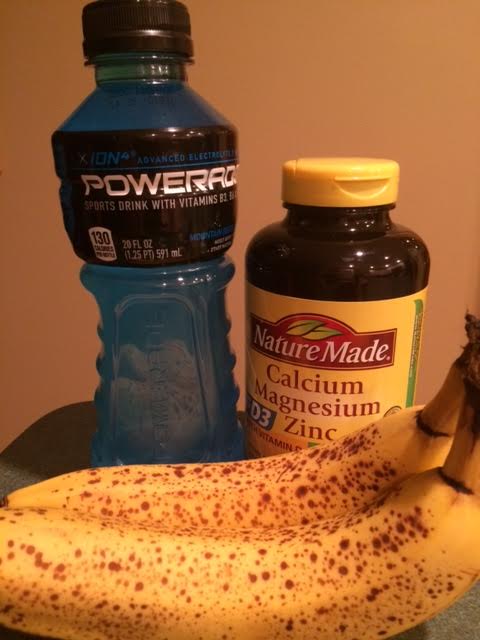Article By: Dale J. Buchberger, PT, DC, CSCS, DACBSP
Muscle cramps are a common complaint in any healthcare practice. Providers of all types field questions about “cramps” everyday. Muscle cramps are sudden, involuntary contractions that occur in a variety of muscles throughout the body. These contractions can be spontaneous and painful to the point of being incapacitating. Commonly affected muscles include the calf muscles in the back of your lower leg, hamstring muscles in the back of your thigh, and quadriceps muscles in the front of your thigh. It is also common to experience cramps in your abdominal wall, arms, hands, and the bottom of the feet.
The intense pain of a muscle cramp can wake you at night from a sound sleep or make it difficult to walk. A sudden, sharp pain lasting from a few seconds to minutes, is the most common symptom of a muscle cramp. However, in some cases, the cramp can result in muscle soreness for hours or days.
There are several reasons that patients may experience muscle cramps. Cramps can result from intense bouts of exercise. This type of cramping is easier to make an association between cause and effect: I ran 10 miles and my legs cramped at the 9th mile. Dehydration is also a cause of cramps, but it does not need to be exercise induced. Dehydration is not only the excessive loss of fluids in the body; it is also the lack of fluid replenishment. If you are not an exercise person but drink large quantities of beverages that have a diuretic effect (such as coffee, tea, alcohol or carbonated drinks) you are dehydrated. This type of self-induced dehydration can cause cramping of skeletal muscles. The majority of the population is walking around relatively dehydrated and doesn’t realize it.
Low levels of minerals in the diet can also result in muscle cramps. While sodium and potassium appear to get all the press when it comes to cramps, calcium is just as important and, in the general population, may actually be a more common cause of muscle cramps. Calcium, potassium, and sodium contribute to healthy muscle function and, when depleted, result in muscle cramps.
Poor blood supply to your legs and feet can cause cramping in those areas when you exercise, walk, or participate in physical activities. If the blood flow has been low for a long period of time, the cramps may occur at rest as well. While this can be common in patients with diabetes, there are several medical conditions that can also restrict peripheral blood flow.
Other medical conditions that can cause muscle cramps include: 1) Compression of spinal nerves, seen in conditions such as degenerative spinal stenosis, which can cause muscle cramps in your legs when walking or standing for long periods of time, 2) hypothyroidism (low thyroid gland function), which has direct effect on calcium metabolism and will result in generalized muscle cramps, 3) alcoholism, 4) pregnancy and 5) various kidney disorders. There are other medical conditions that can cause muscle cramps.
Prescription medications are perhaps one of the most common causes of muscle cramps in the American population. Medications used for blood pressure, cholesterol, congestive heart failure, or respiratory disorders can cause cramping for different reasons. For instance, statin drugs commonly used to treat high cholesterol can cause a condition known as rhabdomyolysis (rab-doe-myo-lysis), or a breakdown of skeletal muscle causing muscle fibers to be released into the blood stream. This is usually the cause of statin related cramping. Various blood pressure medications increase the excretion of electrolytes such as calcium, potassium, and sodium. Low levels of these electrolytes and minerals can result in muscle cramps.
Muscle cramps are very common in the elderly population. Unfortunately, muscle cramps in this population can be multi-factorial. For instance, an elderly patient may be taking a combination of statin drugs for high cholesterol, and a blood pressure medication, be sedentary, and have advanced degenerative changes in the lower back. Therefore, leg cramps in this example may be caused from muscle breakdown (rhabdomyolysis), low electrolytes, nerve compression, and/or sarcopenia or age related atrophy and wasting of skeletal muscle. As simple a symptom that muscle cramps seem to be, there are many causes and depending on the patient’s medical history, may be very complicated and difficult to diagnose.
When should you see a healthcare provider about your muscle cramps? Benign muscle cramps generally resolve without treatment in a short period of time. You should consult with a medical professional about your muscle cramps if they cause severe pain that does not resolve in a few minutes; are associated with swelling, redness, or skin changes (erythema); result in prolonged muscle weakness; are frequent; don’t improve with self treatment of ice and stretching exercises; and are not associated with an obvious cause such as intense exercise.


